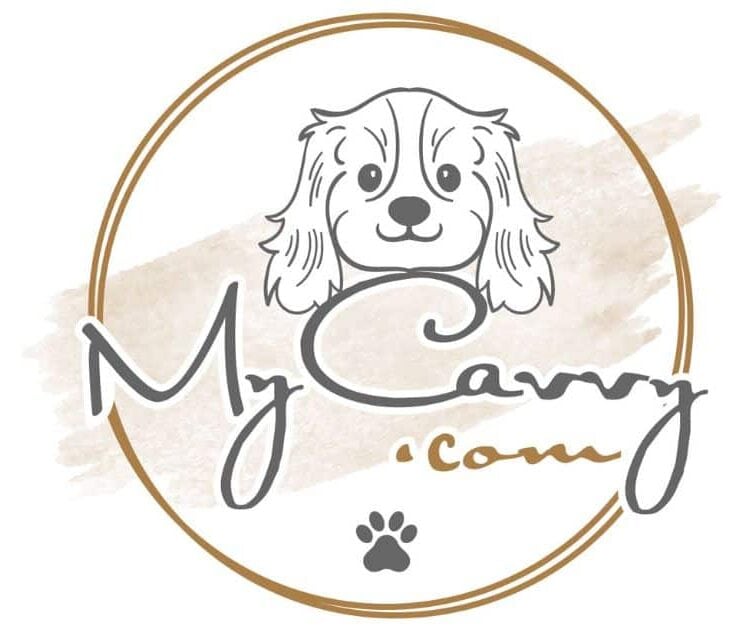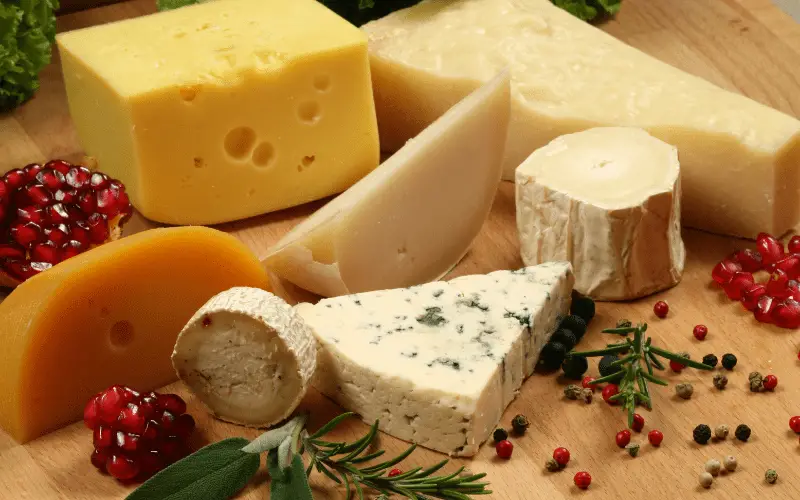If you’re a proud Cavalier King Charles Spaniel owner, you know how important it is to feed them a healthy and balanced diet. However, with so many conflicting opinions about what dogs should and shouldn’t eat, knowing what’s best for your Cavvy can be challenging. So this begs the question, can Cavaliers eat cheese?
Cavaliers can eat cheese in small amounts if they are not lactose intolerant, but as with most things, it can be harmful if consumed in large quantities.
Cheese is a delicious human food many Cavvy owners enjoy sharing with their furry friends, and is a tasty and convenient snack that can be used as a training tool or a special treat.
But is cheese safe, and can Cavaliers eat cheese? While some dogs can eat cheese without issues, others may experience digestive problems or allergic reactions. So we’ll look closer at the nutritional benefits and potential risks of feeding cheese to your Cavalier King Charles Spaniel, so you won’t have to.
Can Cavaliers Eat Cheese?
As dog owners, we often wonder if our furry friends can enjoy the same foods that we do. One of the most common questions is whether or not Cavalier King Charles Spaniels can eat cheese. As with any human food, it’s essential to understand how it can affect your dog’s health before adding it to their diet.
Together, we will explore the benefits and risks of feeding cheese to your beloved pet, which types of cheese they can and can’t tolerate, and the nutritional content of cheese.
The Benefits and Risks of Cavaliers Eating Cheese
Cheese can be a great source of protein and calcium for dogs, but it should be given in moderation. It can also be used as a training treat or to hide medication. Cheese can also help promote healthy teeth and gums by increasing saliva production, which helps to wash away bacteria.
While cheese can benefit dogs, it can also have negative effects if given in excess. Cheese is high in fat and calories, which can lead to obesity and other health problems. Additionally, some dogs may be lactose intolerant and have trouble digesting dairy products, which can cause gastrointestinal upset.
If your Cavvy suffers from an upset tummy, seek medical attention from your veterinarian as soon as possible.

Types of Cheese Cavaliers Can and Can’t Eat
Dogs can eat various types of cheese, but low-fat cheeses are the best as long as they are fed in moderation. Some low-fat cheeses are:
- Mozzarella
- Cottage Cheese
- Soft Goat Cheese
- Low Fat Cheddar
- Swiss
- Parmesan
- Gouda
Cottage cheese is lower in fat and sodium than other cheeses, so this is probably the best choice (source: American Kennel Club).
However, it’s important to never give your Cavvy, or any dog for that matter, cheese with herbs, garlic, or other flavorings, blue cheese, or any cheese with herbs or spices, as these could contain toxic foods to dogs.
Eating these could make them very ill or even prove to be fatal.
High-fat cheeses like cheddar, Swiss, and American cheese should not be given to your Cavalier. The high-fat content can cause gastrointestinal upset and lead to obesity and other health problems such as Pancreatitis.
If small amounts are digested by accident, it is perfectly fine, for example, when someone accidentally drops some on the floor, and your furry kitchen assistant gobbles it up. However, you should visit your veterinarian immediately if large amounts are consumed.
Are Cavalier King Charles Spaniels lactose intolerant?
Many dogs, including Cavalier King Charles Spaniels, can be lactose intolerant. Lactose intolerance is when dogs have difficulty digesting lactose, a sugar in milk and dairy products.
Some lactose-intolerant dogs have trouble drinking milk but can handle dairy products like cheese in small amounts. However, if consumed in large quantities, dairy products can cause gastrointestinal upset, including vomiting and diarrhea. Therefore, it’s important to feed dairy products in moderation.
The amount of lactose can vary among different animal milks. For example, cow’s milk contains about 4.7% lactose, while goat’s milk contains about 4.1% lactose. Sheep and buffalo milk contain even less lactose than goat’s milk.
While some dogs can drink milk, it’s unnecessary for their diet. If you want to give your dog milk, it’s best to choose lactose-free milk or an alternative like almond milk, oat milk, or soy milk.
However, it’s important to note that these milk alternatives should not replace a dog’s regular diet and should only be in moderation (source: PetMD). Ultimately, it is always best to consult a veterinarian before giving your dog any new food or drink.

Training a dog with cheese
Cheese can be a great training tool for dogs, especially for puppies. Many dog trainers use cheese as a high-value reward for good behavior during training sessions.
Low-fat cheese like mozzarella, cottage cheese, or soft goat cheese can be cut into small pieces or shredded and used as a treat during training but used sparingly to avoid gastrointestinal upset or weight gain.
Always remember that avoiding cheese with herbs, garlic, or other flavorings is important, as these can harm dogs (source: American Kennel Club).
Can dogs eat cream cheese?
It is not advised for your dog to eat cream cheese due to its high-fat content. However, if a small amount is consumed accidentally, there shouldn’t be a problem.
But if your dog suffers from a disorder such as lactose intolerance or pancreatitis, consult your veterinarian immediately.
How Much Cheese is Safe for Cavalier King Charles Spaniels?
When feeding your Cavalier King Charles Spaniel cheese, it is important to do so in moderation. Cheese should only be given as an occasional treat and not make up a significant portion of their diet.
As always, it is important to consult with your veterinarian before changing your dog’s diet.
What does cheese do in the gut of dogs?
Cheese can cause gastrointestinal upset in dogs if consumed in large quantities or if the dog is lactose intolerant.
A lactose-intolerant dog eating cheese can also lead to diarrhea, vomiting, and stomach pain.

